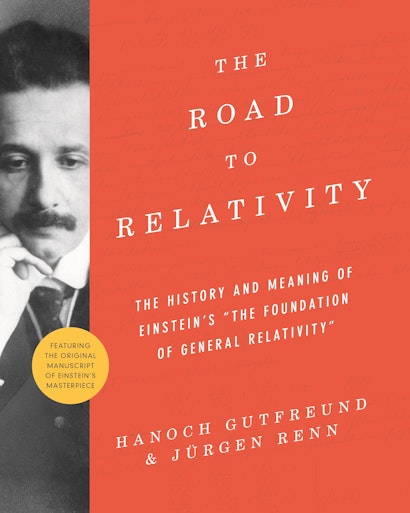Hanoch Gutfreund is professor emeritus of theoretical physics at the Hebrew University of Jerusalem, where he is also the academic director of the Albert Einstein Archives. This is the story about how Einstein’s General Theory of Relativity revolutionized his teaching, understanding, and career.
My present day interest in Einstein evolved late in my academic life. It started when as Rector and then President of the Hebrew University, in the 1990’s, I became aware of the unique cultural asset possessed by the university – the Albert Einstein Archives. When I stepped down from the presidency, with the encouragement of my successor, I began to devote more and more time to promote the Einstein – H.U. connection, through public lectures on various Einstein topics and by organizing and helping to organize Einstein exhibitions in different places in the world.
As professor of theoretical physics, for many years I taught everything that Einstein did in his miraculous year – 1905. However, only in the late nineties did I read the original papers with commentaries by John Stachel. For me this was a revelation. Einstein’s way of thinking, his motivations, his introductions and conclusions – all this was very different from the way these topics were treated in ordinary textbooks. I believe that if I had known and understood what I know and understand today, my students would have appreciated and benefited from my lectures even more. Motivated by this revelation, I decided to fill a gap in my own physics education. As a student, I never had a course in general relativity. In the learning process, the historical context and Einstein’s intellectual struggle were for me at least as important as the scientific results.
To mark the 50th anniversary of the Israeli Academy of Science, we displayed the most important manuscript in the Einstein Archives, the manuscript of Einstein’s seminal paper on general relativity. Each one of the 46 pages of this manuscript was enclosed in a dimly illuminated box. People visited this exhibit as if they were entering a shrine.
Following this experience, I met with Jurgen Renn, director of the Max Planck Institute for the History of Science. We discussed an option to publish this manuscript as part of a comprehensive account of Einstein’s intellectual odyssey to general relativity.
This meeting led to a fruitful collaboration, which has now produced The Road to Relativity: The History and Meaning of Einstein’s The Foundation of General Relativity. It attempts to make the essence of general relativity accessible to broader audiences. We have also initiated the recently published, 100th anniversary edition of Einstein’s popular booklet on the special and general theory of relativity, with extensive background material and a reading companion, intended to resent Einstein’s text in a historical and modern context. We are already considering other Einsteinian projects in the future. Several years back, the world marked the 100th anniversary of general relativity, and many requests were addressed to the Albert Einstein Archives and to myself for assistance in organizing special exhibitions, for participation in scientific conferences and in public events, for interviews in the media and for help and advice in various other initiatives. It was an exciting time, and I remain very grateful for this inspiring phase in my life.
Hanoch Gutfreund is professor emeritus of theoretical physics at the Hebrew University of Jerusalem, where he is also the academic director of the Albert Einstein Archives.

